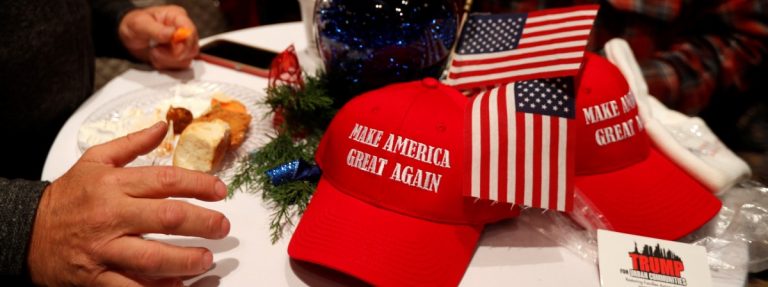
The US government is readying a proposal to make employers pre-register when planning to hire foreigners under the H-1B visa programme, in another change by the Trump administration that is causing alarm among Indian expatriate workers, who constitute almost 70 percent of all H-1B visa holders in the US.
The new rule, which will require US firms to first register electronically, is expected to go into effect February 2018, according to international immigration firm Fragomen’s, Times of India reported. The visas will be limited to 85,000 per year – 65,000 for foreigners coming from abroad and 20,000 for foreign graduates in US colleges and universities.
Hindustan Times stated that the United States Citizenship and Immigration Services (USCIS), which oversees the visa programme, will then randomly select beneficiary employers from among those registered, likely through an electronic lottery.
H-1B visa rules: Trump administration planning more changeshttps://t.co/631wIaExQm pic.twitter.com/kj42qYkBMF
— Hindustan Times (@htTweets) December 25, 2017
“The DHS also plans to propose a priority system for allocation of H-1B cap numbers which would give priority to the most highly-paid and highly skilled, consistent with President Trump‘s ‘Buy American, Hire American’ executive order,” Fragomen’s said in its update.
The Trump administration’s “Buy American, Hire American” objective is said to be the reason for these changes – US President Donald Trump had claimed that US companies’ outsourcing of jobs to countries like India and China is making Americans suffer from the “greatest jobs theft in the history of the world”. In the runup to the 2016 general election, he had promised to bring jobs back to the US, even if this entails forcing local companies to sack highly-skilled foreign workers, according to Asia Sentinel.
The planned changes also include a review on the phrase “specialty occupation” in a bid to “increase focus on truly obtaining the best and brightest foreign nationals”, as well as a revision on the definition of “employment and employer-employee relationship to help better protect US workers and wages”.
Hindustan Times notes that changes to the “high-specialty” definition have already begun, with a computer programmer not being considered as highly skilled anymore.
According to Scott J Fitzgerald, a partner in Fragomen Worldwide, these proposed provisions are scheduled to be announced in February 2018. Following the usual process, there should be a “Notice and Comment” period, which typically takes several months. This would mean the changes won’t go into effect in time to cover the upcoming cap, under which filing begins in April 2018, the Times of India reported.
H-1B visa regime is likely to get tougher as US mulls stricter restrictions on selection https://t.co/8w86azvQ9W
— Economic Times (@EconomicTimes) December 25, 2017
However, the “Notice and Comment” requirement could be waived if these changes are introduced as an emergency – this means the changes could be covered in the next cap filing season.
“This would be a real disaster for many companies as they either may not need to file cases already prepared (if there is a new “pre-registration” system) or they may not want to file many such cases, as many would be very unlikely to be selected under the new selection system,” Fitzgerald added.
Other changes in store include stripping work permits for spouses of H-1B visa holders who are in the midst of waiting for their green cards. Children of H-1B visa holders also face an uncertain future as they grow out of their dependency status as well, as they may be forced to return to their home country after turning 21 even if they have lived in the US for most of their lives.
Liked this? Then you’ll love these…
US: Wives, children of H-1B visa holders face uncertain future
US allows fast processing again for some H-1B visa applications







